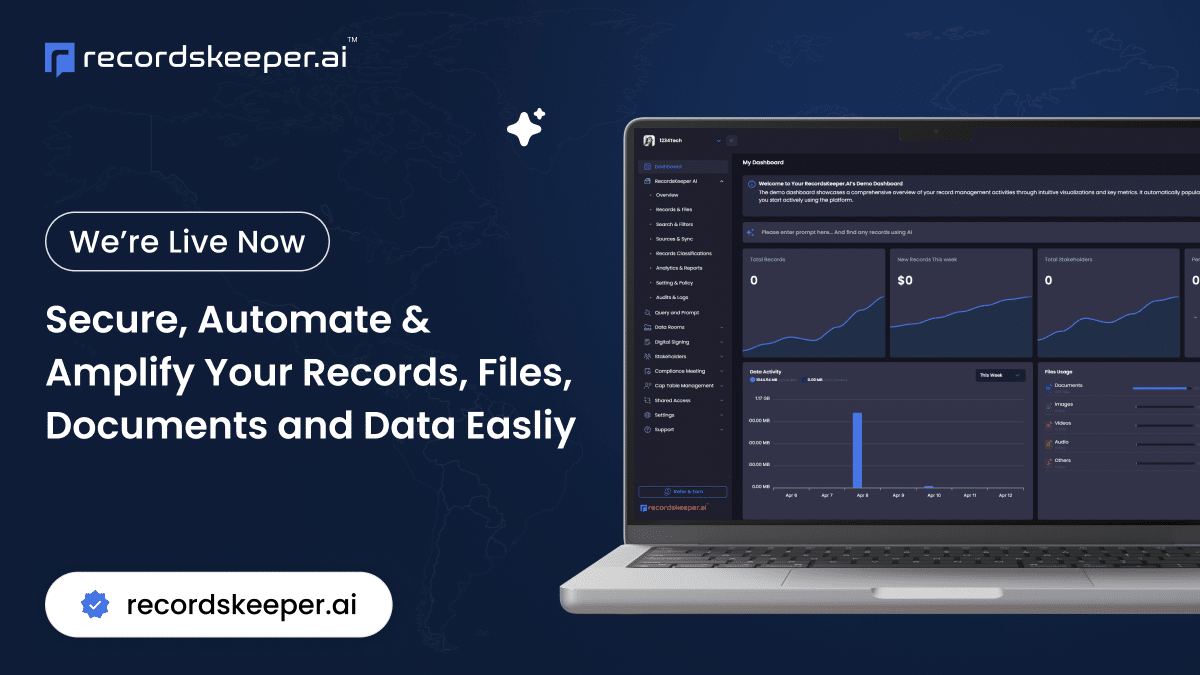Understanding the Challenges of Record Synchronization
In an era where data drives decision-making, managing record synchronization across diverse systems is not just important—it’s critical. Many organizations face significant challenges in ensuring that their data remains consistent, accurate, and up-to-date across multiple platforms. This is an issue I’ve encountered first-hand, both in the tech industry and as the founder of RecordsKeeper.AI. It’s a complex problem, but with the right tools and strategies, it can be managed efficiently.
The Importance of Synchronization in Today’s Multi-System Environment
With the rapid proliferation of various applications and systems, organizations often deal with disparate data silos. These fragmented information channels can lead to inconsistencies and inefficiencies. Imagine running an analytical report only to discover that the data inputs were outdated or incorrect—errors that could potentially lead to costly business decisions.
For those of us in the technology sector, ensuring seamless record synchronization is vital. It not only enhances operational efficiency but also ensures compliance and integrity across platforms. This is where the integration of advanced technologies like AI and Blockchain comes into play.
AI and Blockchain: Game Changers in Synchronization
Some might ask, “Why introduce AI and Blockchain into this mix?” The answer lies in these technologies’ unique capabilities to address synchronization challenges:
1. AI-Powered Automation: AI helps automate record synchronization by intelligently analyzing, matching, and updating data across systems. This reduces manual efforts and minimizes the risk of human error. At RecordsKeeper.AI, we’ve developed AI tools that streamline the classification and retrieval of records, significantly reducing the time it takes to achieve synchronization.
2. Blockchain’s Immutability: Blockchain technology ensures that records are tamper-proof and consistent across all systems. By maintaining a decentralized ledger, Blockchain offers unparalleled security and transparency, ensuring data integrity from the moment it is logged. This proves invaluable in sectors that require stringent compliance, such as finance and healthcare.
Implementing Effective Synchronization Strategies
Getting synchronization right involves a combination of strategic planning and leveraging the right technology. Here are key strategies that organizations can adopt:
Real-World Impact on Compliance and Security
The implications of poor record synchronization can be severe, especially for compliance and security. For organizations operating under regulatory frameworks like GDPR, HIPAA, or SOX, inconsistencies in data could lead to severe penalties and loss of reputation.
By integrating Blockchain and AI within RecordsKeeper.AI, I’ve observed firsthand how these technologies enhance not only synchronization but also regulatory compliance. Our platform automates regulatory workflows, ensuring adherence while maintaining detailed audit logs and generating compliance reports. This not only saves time but also mitigates risks associated with human oversight.
The Future of Record Synchronization
The landscape of record management is continually evolving. To stay ahead, businesses need to adopt a forward-thinking approach, leveraging technologies that guarantee data consistency and security. Building robust systems for synchronization is no longer a luxury; it’s a necessity.
As we continue to develop and refine RecordsKeeper.AI, our goal remains clear: to transform how organizations handle their records—turning it into a strategic advantage. The integration of AI and Blockchain sets a strong foundation for organizations to build upon, ultimately leading to more efficient, compliant, and secure data ecosystems.
Conclusion: Leveraging Technology for Seamless Synchronization
As organizations navigate the complexities of multi-system environments, mastering record synchronization is pivotal. By embracing AI and Blockchain as integral components of this process, we pave the way for a future where data integrity and compliance are effortlessly maintained.
I invite you to explore RecordsKeeper.AI further as a solution tailored to meet these synchronization challenges head-on. By transforming how businesses manage records, we’re not just improving efficiency—we’re setting new industry standards.
For those keen on diving deeper into tech innovations and entrepreneurial insights, let’s stay connected. As I continue this journey, I’m excited to share more learnings and breakthroughs with you.








